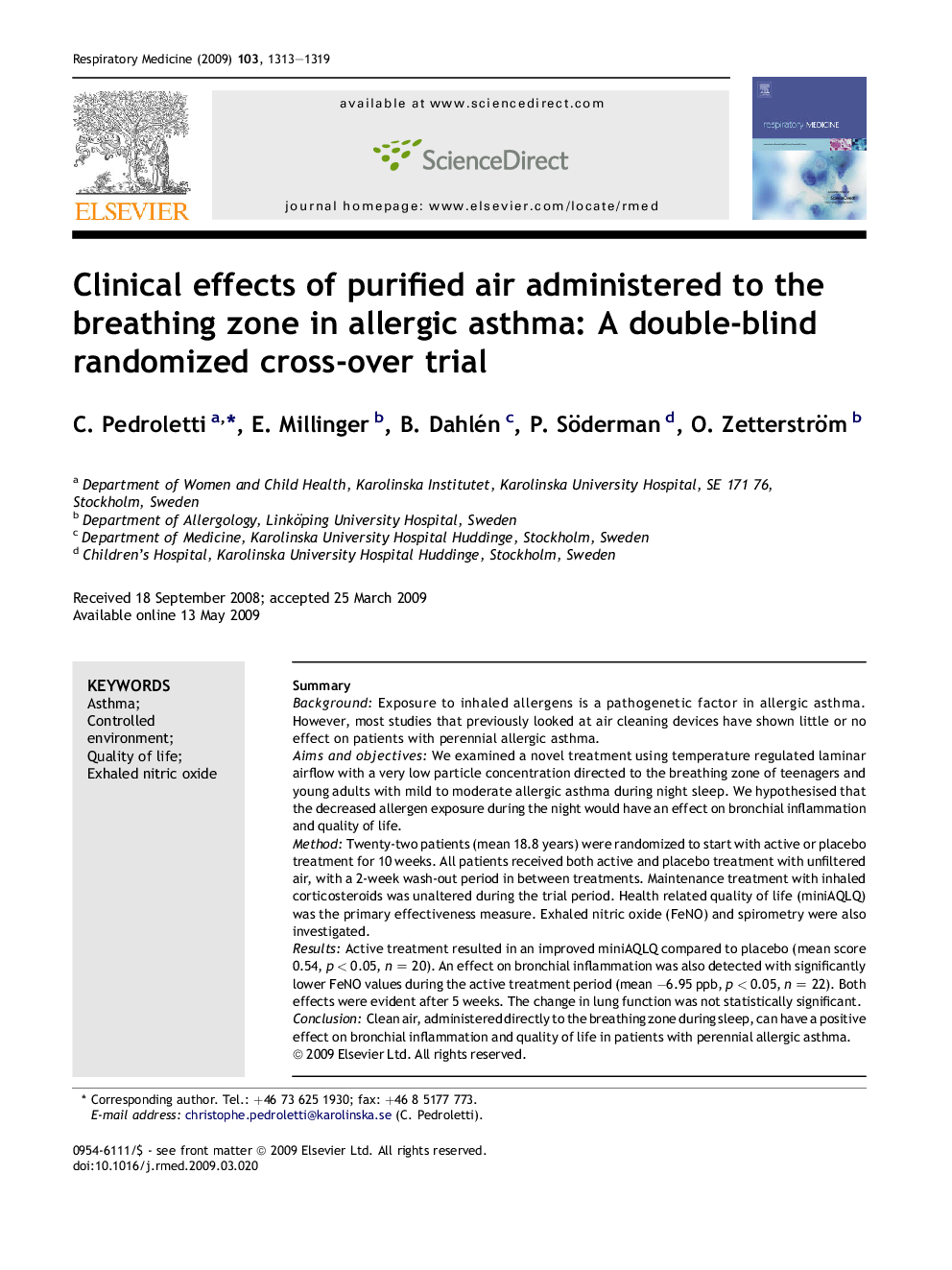| Article ID | Journal | Published Year | Pages | File Type |
|---|---|---|---|---|
| 4210939 | Respiratory Medicine | 2009 | 7 Pages |
SummaryBackgroundExposure to inhaled allergens is a pathogenetic factor in allergic asthma. However, most studies that previously looked at air cleaning devices have shown little or no effect on patients with perennial allergic asthma.Aims and objectivesWe examined a novel treatment using temperature regulated laminar airflow with a very low particle concentration directed to the breathing zone of teenagers and young adults with mild to moderate allergic asthma during night sleep. We hypothesised that the decreased allergen exposure during the night would have an effect on bronchial inflammation and quality of life.MethodTwenty-two patients (mean 18.8 years) were randomized to start with active or placebo treatment for 10 weeks. All patients received both active and placebo treatment with unfiltered air, with a 2-week wash-out period in between treatments. Maintenance treatment with inhaled corticosteroids was unaltered during the trial period. Health related quality of life (miniAQLQ) was the primary effectiveness measure. Exhaled nitric oxide (FeNO) and spirometry were also investigated.ResultsActive treatment resulted in an improved miniAQLQ compared to placebo (mean score 0.54, p < 0.05, n = 20). An effect on bronchial inflammation was also detected with significantly lower FeNO values during the active treatment period (mean −6.95 ppb, p < 0.05, n = 22). Both effects were evident after 5 weeks. The change in lung function was not statistically significant.ConclusionClean air, administered directly to the breathing zone during sleep, can have a positive effect on bronchial inflammation and quality of life in patients with perennial allergic asthma.
